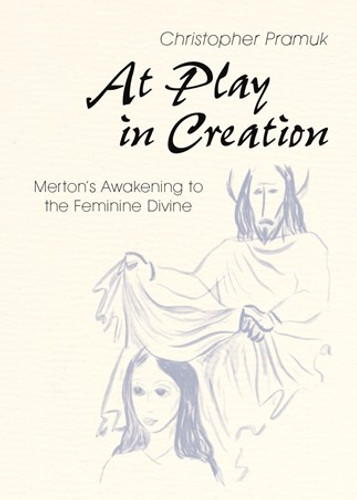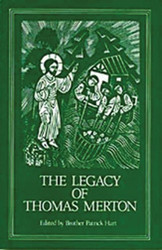In this series of deeply meditative retreat conferences, Christopher Pramuk leads the reader through a sustained meditation on Wisdom-Sophia, the feminine face of God's presence alive in the world, who speaks and sings in the writings of Thomas Merton. With the sensitivity of a poet and the intellectual acuity of a seasoned teacher and Catholic theologian, Pramuk invites readers to taste and see for themselves the hidden presence of Christ and the dynamism of Love at play in creation; the biblical and mystical tradition from East to West calls this presence Sophia. Looking beyond Merton to seek out her presence in the silent and broken landscapes of our world today, Pramuk shows Sophia above all to be the bearer of hope in an age of unspeakable violence and planetary destruction.
Product Preview
| Format: | Paperback book |
|---|---|
| Product code: | LP4816 |
| Length: | 152 pages |
| Publisher: |
Liturgical Press
|
| ISBN: | 9780814648162 |
| 1-2 copies | $21.95 each |
|---|---|
| 3-9 copies | $20.95 each |
| 10-49 copies | $19.96 each |
| 50-99 copies | $19.46 each |
| 100+ copies | $18.71 each |
Praise
Priming our theological imaginations with the rich and sensuous language of poetry and with Merton's poem Hagia Sophia as a guide, Pramuk opens us to the divine music hidden in each of our encounters and allows us to glimpse the unseen Reality whom Merton calls Sophia. . . . Pramuk explores her many manifestations within the Hebrew and Christian Scriptures and to people of various faith traditions, inviting us to peer into the liminal spaces of our own lives, the dark places, the places of our poverty where Sophia dwells and from which love springs.
In the midst of this absolutely beautiful book of reflections on Wisdom in Thomas Merton, Christopher Pramuk asks, after citing a passage, "Can somebody say Amen?!" Well, I can and am doing so with true delight. Pramuk brings together in his writing the poet and the scholar, the artist and the critic, the monk and prophet Merton was. His study of Wisdom in Merton is outstanding. This collection of reflections is a feast; Wisdom truly has set her table for us in them.
In Christopher Pramuk's marvelous new book, lyrical theology and thoughtfully grounded spirituality merge into one. His "voice" resonates in harmony with Thomas Merton's. As a professor of theology, Pramuk reads Merton well, but then as poet and musician, he sings and plays with Merton's most significant themes in a fresh, new key. . . . Pramuk is now my go-to theologian/poet for a trustworthy rendition of Merton's legacy. I smell a "classic" about to be born before my grateful eyes. My gut reaction is "Oh boy, oh boy, oh boy!" which is an American translation of "Bravissimo!"
In his hymn to Holy Wisdom, Thomas Merton wrote that all things reveal 'a hidden wholeness,' available to the eyes of contemplation. In his deeply lyrical reflections, Christopher Pramuk brings such an eye to Merton's own work. In the centenary of Merton's birth, this book is a great gift, a bell summoning us to prayer and praise.
At Play in Creation is a lovely and inviting journey. The Sophia/Wisdom tradition becomes the lens for exploring the Divine in the midst of a humanity bent on self-destruction. I found this oddly hope-filled and energizing. We can be the change we want to see in the world.
Simply illustrated with Merton's own sketches, this little pocket-sized volume is packed full of prayerful reflection and hopeful longing - surely the fruit of much pondering on the works of Thomas Merton and the experience of deep contemplation. Indeed, Pramuk's conferences do fulfill this aim of setting free in the reader, `the quickening of hope' (ix) this life in all its mystery and its paradox, can be "made from Love' when we first `listen from the inside' (28).
Pramuk's style in this work is very much like Merton's own; the writing is intuitive, spontaneous, and personal rather than formal and analytical. The present work offers readers familiar with Merton and biblical and theological wisdom traditions a personally enriching and intellectually creative exploration of Sophia, the Wisdom of God.
In order to write this clearly and purposefully the subject matter, in this example Hagia Sophia, the Feminine Divine of Thomas Merton, must be not only well known by the author but also beloved. I sense in the reading of this well done presentation a gentleness, an invitation, a welcoming. I feel blessed and called to a further awakening.
Merton was notoriously intuitive. Reading this book makes me keenly aware that to the extent his intuition about divine Wisdom is accurate, then we can anticipate Sophia rising.
Author
Christopher Pramuk is associate professor of theology at Xavier University in Cincinnati, Ohio. He is the author of Sophia: The Hidden Christ of Thomas Merton and Hope Sings, So Beautiful: Graced Encounters across the Color Line; he is also a contributor to Give Us This Day, published by Liturgical Press. The recipient of the Catholic Theological Society of America's 2009 Catherine Mowry LaCugna Award, he has also received the International Thomas Merton Society's 2011 Thomas Merton Award and several best essay awards from the Catholic Press Association.








